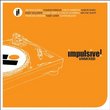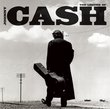| All Artists: Johann Sebastian Bach, Piotr Anderszewski Title: Bach: Partitas Nos. 1, 3, 6 Members Wishing: 1 Total Copies: 0 Label: EMI Classics Release Date: 12/23/2002 Genre: Classical Styles: Chamber Music, Forms & Genres, Suites, Historical Periods, Baroque (c.1600-1750), Classical (c.1770-1830) Number of Discs: 1 SwapaCD Credits: 1 UPC: 724354552625 |
Search - Johann Sebastian Bach, Piotr Anderszewski :: Bach: Partitas Nos. 1, 3, 6
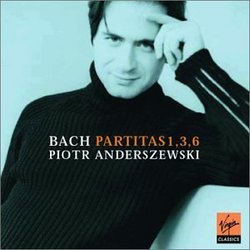 | Johann Sebastian Bach, Piotr Anderszewski Bach: Partitas Nos. 1, 3, 6 Genre: Classical
The flourish that begins the Sixth Partita's Toccata is a hint of things to come--this is Bach sounding easy without skimping on its monumentality. The following fugue is gently played but absolutely clear. Elsewhere, Piot... more » |
Larger Image |
CD DetailsSynopsis
Amazon.com The flourish that begins the Sixth Partita's Toccata is a hint of things to come--this is Bach sounding easy without skimping on its monumentality. The following fugue is gently played but absolutely clear. Elsewhere, Piotr Anderszewski might remind you of Glenn Gould--his attacks on fugal entrances are sharp and purposefully noticeable--as in the fugue in the Gigue that ends the Partita No. 6. He embellishes the written score nicely in the Allemande of the First Partita, and just to hear him play the final Gigue from the Partita No. 1 is enough reason to buy this CD: the playing is fleet and spotless, the rhythm never flags. The effect is exhilarating. Throughout, Anderszewski's dynamic range is vast, with soft passages lolling us into relaxation and the grander moments truly being grand. This is a beautiful recording. --Robert Levine Similarly Requested CDs
|
CD ReviewsVirtuosity and technique galore but needs time to understand Larry VanDeSande | Mason, Michigan United States | 07/14/2005 (3 out of 5 stars) "Piotr Anderszewski won the Kalamazoo, Mich.-based Gilmore Competition a few years ago, taking home its $300,000 first prize. He made a spate of recordings afterward including this one. Based on the evidence presented here, this fellow is like a lot of young award winners. He has stupendous technique and can't wait to show it off. He also demonstrates a quantum of artistry. Whether that happens to merge with the requirements of the music he's playing is a question needing an answer. My answer is not often enough. In the titanic Partita No. 6, one of Bach's very greatest keyboard compositions, Anderszewski makes his approach known in the first few moments and rarely strays. His work is fast, virtuosic, not Baroque in any way, and usually without much thought about the contents of the music. While listening I often asked myself, as I did during the Courante, "Where's the fire?" Anderszewski simply refuses to take his time and allow the music to unfold. He blazes through the pages of the score as if he was late for a dinner date. Using occasional rubato and pedaling that obscures the counterpoint, Anderszewski turns this music into a virtuoso feast...until he reaches the 7 minute, 15 second Air, when a different personality takes over the keyboard. Here is music that is thoughtful, creative and melodious, exposing Bach's score writing and his human qualities. For once the music speaks in Bach's voice. All too soon it's back to the rat race at 120 MPH and heart beating at 120 beats per minute. His lack of ornaments in the concluding Gigue seemed to indicate he might be tiring of his own slapdash format. The Partita No. 3 is more of the same with a caveat or two. Anderszewski slows down and enjoys a singing tone in the Sarabande but also does some weird stuff with the right hand in an unnecessarily showy manner that gets in the way of the music. His very unBaroque accents in the Scherzo indicate this is not a player attuned to 17th century style. Compared to the first two numbers, Anderszewski was either worn out or of a different mind when he got to Partita No. 1. The Praeludium is relaxed from the opening notes and attentive to Bach's counterpoint. His good work continued in the Allemande, although I'd have preferred more pointed left hand playing. The Sarabande is very nice but, at 6 minutes, 14 seconds, is also a tad short. The pianist is very creative in the Menuet section before closing with another display of virtuosity, and ends the piece unusually silently. All told, I was most impressed by the speed with which Anderszewski raced through this music. I compared his recording times to my favored versions of these Partitas (Elena Kuschnerova in No. 6 Elena Kuschnerova, Kristina Svanberg in No. 3 J.S. Bach: Partita No. 3 in A minor, BWV 827; Six Little Preludes BWV 933-938; Fantasy and Fugue in C minor BWV 906; Chromatic Fantasy and Fugue in D minor BWV 903; Aria BWV 988, and Dubravka Tomsic in No. 1Bach: Italian Concerto BWV 971; Partita No. 1 BWV 825; Toccata in D BWV 912) and found Anderszewski's times were faster in most movements. In two of the most important sections, Anderszewski's Tocatta of No. 6 and Sarabande of No. 1 were both almost one minute faster than the competitors. While speed doesn't always kill in classical music, his consistent whirlybird approach worked against the mathematical genius demonstrated in the two handed counterpoint that is the essence of these creations. It's clear Piotr Anderszewski is a significant talent with magnificent technique. In addition, the recording is unquestionably truthful and in its own way the equal to Anderszewski's playing. The notes aren't much; they talk about the music for two pages in three languages without a word about the player. One other note -- this recording gets much louder at the end of each Partita than during the 5-6 sections preceding that time. I think this may be the first time I've ever encountered such engineering in a CD. Piotr Anderszewski is quite a keyboard artist but I can't fully get on board with this young man's approach to very mature music. He'll better understand this in another 20 years or so and will, hopefully, record these great works of art again at that time." REFRESHINGLY INTUITIVE BACH Melvyn M. Sobel | Freeport (Long Island), New York | 08/19/2005 (5 out of 5 stars) "Under the wrong fingers, Bach's magnificent Partitas can, at best, languish in homogeneity or, at worst, become icons of monotony. With Piotr Anderszewski, not so; in his hands, a natural balance is consistently achieved throughout. In an impressive recording that is both warm and transparent, individual movements are superbly judged and contrasted; ascending and descending motifs garner admiration; inner voicing is a constant source of pleasure and wonder, with both hands equally superb; especially quirky trills are delectable, flourishes surprisingly engaging; the counterpoint, a marvel of clarity. There is youthful passion here, yes, joyful in its expansive, gregarious nature, but simultaneously contemplative and, quite often, deeply melancholy, as well. While his relatively "modern" delivery may judiciously subjugate standard Baroque practice, though never misrepresenting Bach in the process, in so doing Anderszewski liberates this timeless music from metronomic constraint, immensely broadens its appeal and unabashedly unshackles its melodic lines. [Running time: 68:10] " Bach would be pleased. J'Carlin | San Jose, CA United States | 05/11/2003 (5 out of 5 stars) "While enjoying Mr. Anderszewski make beautiful music with these partitas, it is easy to imagine J. S. Bach near the end of his life sitting at the Silbermann pianofortes at the home of Frederick the Great, playing the partitas and thinking "now I know what instrument I wrote these for."These were recommended by a trusted friend who heard them on the radio and guessed at the name of the artist. The first hearing was incredible. Like hearing the partitas for the first time all over again. Repeated listening has not dulled the thrill. Thank you Mr. Anderszewski."
|

 Track Listings (21) - Disc #1
Track Listings (21) - Disc #1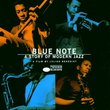
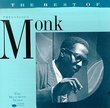
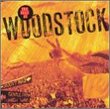
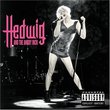
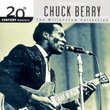
![The Best of Elvis Costello: The First 10 Years [DIGIPACK]](https://nationalbookswap.com/cd//m/83/1883/1041883.jpg)
